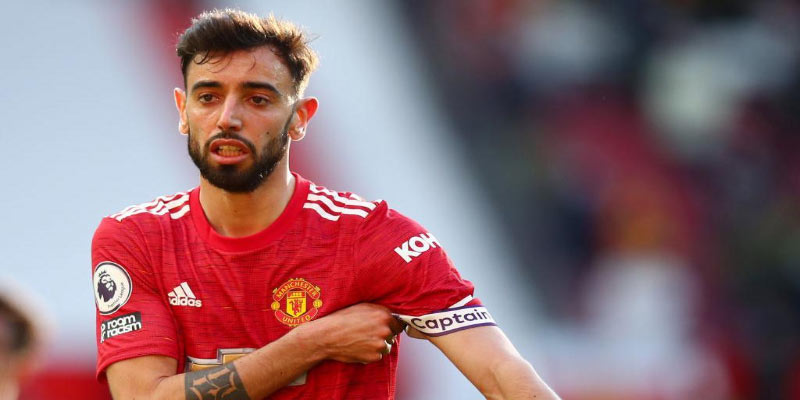
The Untold Story of Manchester United Captain
The role of Manchester United captains is iconic, representing the club’s rich history and cherished traditions. These leaders not only guide the team on the pitch but also uphold its values and aspirations off it. From legendary figures to today’s captain, their journey is marked by challenges, triumphs, and inspiring moments. Explore the stories behind the armband at rr88, where the spirit of leadership comes to life.
Introduction to Manchester United’s Captain
The captaincy at Manchester United is more than just a title; it’s a legacy that carries the weight of both past glories and future hopes. Over the years, the captains have played pivotal roles in shaping the club’s identity and influencing its direction.
Who is Manchester United’s current captain?
As of now, the mantle of the Manchester United Captain is held by Harry Maguire. Since joining the club in 2019 from Leicester City, Maguire has grown both as a player and as a leader.
His journey to becoming the captain began with his strong performances on the field, showcasing his defensive prowess and ability to read the game. With each match, he gained the respect of his teammates and coaches alike. His leadership qualities shone through particularly during challenging times, proving that he could rally his squad even when facing adversity.
Maguire was appointed captain in January 2020, taking over from Ashley Young, who had been an instrumental figure in the dressing room. In this critical role, he has faced the dual challenge of managing expectations while striving for personal and team excellence. His versatile skill set, combined with his experience at the international level with the England national team, made him a natural choice for the position.
Why is the captaincy important for Manchester United?
The captaincy holds immense significance for Manchester United, a club synonymous with success, ambition, and resilience. This role goes beyond just wearing an armband; it’s about representing the club’s values and leading by example on and off the pitch.
Historically, the captain serves as a bridge between the players and coaching staff, ensuring effective communication and fostering camaraderie within the squad. Additionally, the captain often embodies the ethos of the club, inspiring younger players while upholding the standards expected at a world-class institution like Manchester United.
In the modern era, the captain must navigate a landscape influenced by social media scrutiny and intense fan expectations. Thus, the role requires emotional intelligence, adaptability, and a commitment to driving the team towards collective goals. This multifaceted responsibility ensures that the captain remains a crucial component of Manchester United’s ongoing legacy.
A Historical Overview of Manchester United Captains
To understand the importance of the Manchester United Captains, we must delve into the club’s rich history and the legendary figures who have donned the captain’s armband throughout the years.
Legendary captains in Manchester United’s history
Bryan Robson, Roy Keane, and Eric Cantona are three names that resonate deeply within the hearts of Manchester United fans. Each of these players brought something unique to the captaincy, elevating the standards of leadership in their own ways.
Bryan Robson, known affectionately as “Captain Marvel,” led the team with sheer determination and tenacity. His career spanned from the early 1980s until the mid-1990s, a period that saw Manchester United transition from being a club with potential to a dominant force in English football. Robson’s leadership style was characterized by his tireless work ethic and unwavering loyalty, traits that inspired his teammates and established him as a club legend.
Roy Keane took over the captaincy in the late 90s and embodied the gritty, no-nonsense approach that defined Manchester United during Sir Alex Ferguson’s most successful years. Keane was known for his fiery temper and fierce competitiveness. His presence commanded respect, both on and off the pitch, and he was relentless in pursuing victory. Under his guidance, the team achieved unprecedented success, including multiple Premier League titles and Champions League glory.
Eric Cantona, on the other hand, brought flair and charisma to the captaincy. His creative genius and ability to turn games around made him a fan favorite. Cantona’s leadership style was less about vocal authority and more about leading by example through extraordinary performances. He taught the importance of artistry in football and reminded everyone that winning could be achieved with elegance and passion.
Leadership qualities of great captains
Great captains at Manchester United captain possess distinctive leadership qualities that set them apart from their peers. One of the most vital attributes is the ability to inspire teammates. A captain must create an atmosphere of motivation and encouragement, especially during challenging matches or times of adversity.
Moreover, emotional intelligence is essential for understanding the dynamics within the team. A captain must be attuned to the needs of individual players and foster a sense of unity among diverse personalities. This quality enables effective communication and encourages collaboration, which is fundamental to achieving team goals.
Another critical trait is resilience. The pressures of playing for Manchester United are immense, and a captain must demonstrate mental strength and composure in high-stakes situations. Champions are often defined by their ability to bounce back from failure and learn from setbacks. A captain who exemplifies this mindset can instill confidence in the entire squad, reinforcing a culture of perseverance.
Lastly, tactical understanding plays a crucial role in effective captaincy. A captain must comprehend the game on a deeper level, allowing them to make insightful decisions during matches. They should also act as a liaison between the coach’s instructions and the players’ execution on the field, ensuring seamless integration of strategy and skill.



